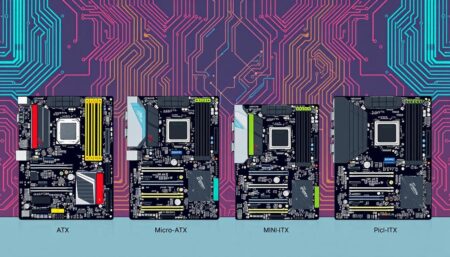When it comes to purchasing a new computer, the question of which processor to choose between Intel and Ryzen can be a challenging one. Both Intel and Ryzen are major players in the processor market, and each has its strengths and weaknesses. In this article, we will compare Intel and Ryzen processors to determine which one is better.
What are Intel and Ryzen Processors?
Before we compare the two processors, let’s take a look at what they are. Intel and Ryzen are two different brands of processors. Intel has been a dominant player in the processor market for decades, while Ryzen is a newer brand that has been gaining popularity in recent years. Both brands are used in desktop and laptop computers, and each brand has a wide range of processors to choose from.
Performance
When it comes to processor performance, Ryzen has a clear advantage over Intel. The Ryzen processors have more cores and threads than Intel processors, which means they can handle more tasks simultaneously. Ryzen also has better multi-threaded performance, making it ideal for tasks such as video editing, 3D rendering, and gaming.
Price
One of the most significant advantages of Ryzen processors over Intel is their price. Ryzen processors are generally more affordable than Intel processors of similar performance levels. This makes Ryzen an attractive option for budget-conscious consumers who still want high performance.
Power Consumption
Intel processors have a reputation for being power-hungry, while Ryzen processors are known for being more power-efficient. This means that Ryzen processors generate less heat and consume less power than Intel processors. As a result, computers with Ryzen processors can have longer battery life and run quieter.
Gaming Performance
When it comes to gaming performance, the difference between Intel and Ryzen processors is less pronounced. Intel processors have traditionally been considered the best option for gaming due to their higher clock speeds. However, recent Ryzen processors have closed the gap, and some Ryzen processors can match or even surpass Intel processors in gaming performance.
Overclocking
Overclocking is the practice of increasing the clock speed of a processor to get better performance. When it comes to overclocking, Ryzen processors have an advantage over Intel processors. Ryzen processors are easier to overclock, and they tend to have more headroom for overclocking than Intel processors.
FAQs:
- What is the difference between Intel and Ryzen processors?
- Intel and Ryzen are two different brands of processors. Ryzen has more cores and threads than Intel processors, making it better for multitasking and performance-intensive tasks.
- Are Ryzen processors more affordable than Intel processors?
- Yes, Ryzen processors are generally more affordable than Intel processors of similar performance levels.
- Which processor is better for gaming, Intel or Ryzen?
- Both Intel and Ryzen processors can be good options for gaming, but Intel processors have traditionally been considered the best option. However, recent Ryzen processors have closed the gap, and some Ryzen processors can match or even surpass Intel processors in gaming performance.
- What is overclocking?
- Overclocking is the practice of increasing the clock speed of a processor to get better performance.
- Which processors are easier to overclock, Intel or Ryzen?
- Ryzen processors are generally easier to overclock than Intel processors, and they tend to have more headroom for overclocking.
Conclusion:
After comparing Intel and Ryzen processors, it’s clear that Ryzen has a significant advantage over Intel in terms of performance, price, power consumption, and overclocking. While Intel processors may still be the best option for some specific.
Here is a comprehensive table of the ryzen vs intel comparison.
| Features | Ryzen | Intel |
|---|---|---|
| Number of cores | Up to 16 cores | Up to 18 cores |
| Clock speed | Up to 5.3 GHz | Up to 5.3 GHz |
| Multi-threading support | Yes | Yes |
| Hyper-threading support | No | Yes |
| Thermal design power | 35W – 280W | 35W – 165W |
| Integrated graphics | Yes (some models) | Yes (most models) |
| Overclocking support | Yes | Yes |
| Price range | Mid-range to high-end | Mid-range to high-end |
| Compatibility | Compatible with AMD motherboards | Compatible with Intel motherboards |
As you can see, Ryzen and Intel processors have some key differences in terms of core count, clock speed, multi-threading support, hyper-threading support, thermal design power, integrated graphics, overclocking support, price range, and compatibility with motherboards. Ultimately, the choice between Ryzen and Intel will depend on your specific needs and budget.
